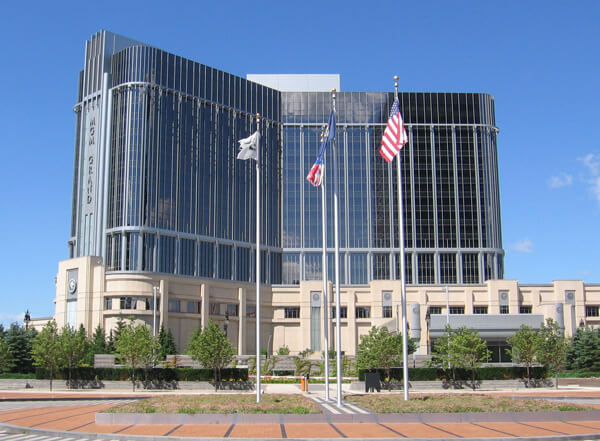Many economic analysts are attributing the decline of wagering tax revenue of Detroit’s three casinos to one of the leading causes for their economic hardship. How bad is it? Now, for the first time in US history, a city has defaulted on a debt to avoid bankruptcy filing. Emergency Manager Kevyn Orr is behind what is widely seen as a shocking rejection for the deal that was initiated with banks over the last week. Orr said unsecured debt holders would be refunded less than 10 cents on the dollar, but secured creditors would get “better treatment”.
The definition of secured credit is an asset that makes money is pledged to back the creditor. In this instance, Detroit has secured its interest rate swap agreements with it’s three casinos revenue stream.
 Why was is so important this happened right now? With $330 million in assistance from groups such as the Ford Foundation, and of course, the federal government, Detroit will not begin to see these funds until the city has effectively left the veil of bankruptcy covering their checkbooks. It was with great hesitation that voters in Michigan approved gambling back in 1996 for the Detroit area. This was widely in the hopes that it would revitalize the floundering economy of the city, not to be used as a lien title.
Why was is so important this happened right now? With $330 million in assistance from groups such as the Ford Foundation, and of course, the federal government, Detroit will not begin to see these funds until the city has effectively left the veil of bankruptcy covering their checkbooks. It was with great hesitation that voters in Michigan approved gambling back in 1996 for the Detroit area. This was widely in the hopes that it would revitalize the floundering economy of the city, not to be used as a lien title.
The three sparkling new resorts opened to spark a sudden energy burst in the area which brought up to $180 million each year in taxes. These are the MGM Grand Detroit, Motorcity Casino Hotel, and Greektown (marked A, B, and C on the map below). However, due to a less than desirable contract, most of the revenue was used to payback debt. In hopes of reducing their liabilities, Detroit successfully sold nearly $1.5 billion in bonds during 2005 and 2006. These bonds were then utilized as derivatives in order to drastically cut risks.
View Larger Map
Unfortunately, it did not work and actually back fired causing interest rates to drop. Detroit had mistaken hopes that they would actually rise and bring an assurance in the housing market. In 2009, the city suffered a massive hit to their credit rating giving banks the choice of demanding $400 million. However, the city ultimately offered up a pledge of casino revenue as collateral in order to avoid any immediate payments.
Reportedly, this deal was the subsequent key factor that shoved Detroit into what has been deemed the most immense municipal bankruptcy in the history of the United States. Now the city has begun seeking out access to these gambling funds to enhance city services as well as the funding of a loan that would successfully eliminate the derivatives deal. Towards the end of December, it was on the negotiating table for the banks that backed the derivatives deal to simply accept a 43 percent reduction in value.
Sadly, federal bankruptcy Judge Steven Rhodes rejected this strategy just last week due to the shallow nature of the discount. Orr had initially planned with great hopes to have the city out of bankruptcy by early fall of 2014. Don’t take their value lightly, the taxes from these three casinos are actually the city’s third largest source of revenue after municipal income taxes and state revenue sharing. Orr describes the casinos as Detroit’s most stable income.







